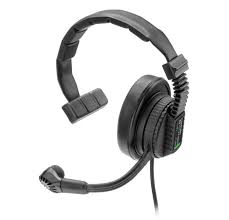Very happy to be a sounding board, particularly when I share a similar theme to another PgCert student. How delighted I was to be part of Lauren’s journey where she piloted some questions on me. Her blog post about our exchange is here: https://laurenc123.myblog.arts.ac.uk/2021/11/08/piloting/
The questions were presented to me, and for the first time in a long time, I heard myself be really passionate not only about my subject, but about the complimentary skillset to the different degree subjects that I teach. I teach large groups – whole classes – at a time, as well as individuals. Why, if I’m teaching large classes, can I not feed back to the tutors about successes? The tutors don’t ask about them, or about any concerns. I’m on the same grade as a lecturer – should I not have a shared responsibility for assessing the needs of a student rather than blindly delivering?
How do I measure what I teach?
From Lauren’s blog post commenting on the mock interview I took part in, with me as the interviewee:
“I had a total light bulb moment towards the end of our conversation. It flowed on from the question about what technical involvement could look like. The interviewee highlighted the benefit it would have to them as a marker seeing the student perspective on what they had taught- their reflection of what they have learned from you and your window into that. This was something I had not considered- I had never thought about being involved in the marking process as a way to improve your own practice, and to use it as a useful tool to challenge your perceptions of knowledge exchange that has taken place. In my mind I was more focused on perhaps the potential benefits for the students that this was a really interesting unexpected perspective. I really hope my other interviews provide we with more unexpected insights.”
If I cannot see what the student has retained from what I have taught, then I need to do something about it. If I cannot measure competency, I cannot guarantee safe passage of skills in a dangerous industry – height, weight, electricity, chemicals, time management, welfare – these are all things that can do serious damage. Without any form of assessment, it it impossible to see whether a student will be able to survive immediately after graduation, or even how to conduct themselves in a part-time theatre job or work experience. I need to able to see if a student has made any glaring errors or dangerous decisions that are not picked up on by tutors who have spent several years without working industry knowledge. These “soft skills” as some academics delightfully call what I teach, are the skills that will keep a theatre design graduate safe from harm and able to pay the rent.

Thank you so much for being my sounding board! It was a hugely fruitful conversation, and it makes it apparent that more conversations like this need to happen across the board!
While I get to see some form of what students have grasped practically in our sessions by them carrying out tasks and providing in situ verbal feedback… I do not get to see/hear their reflections on it in the context of their project, especially when it comes to year 3 and there is little to no technical delivery other than 1-1 tutorials. It is expected that students create internal feedback from our feedback in these 1-1’s, yet as technicians we do not get to see the manifestation of that, unless students log it in their log books and we have access to the submission area (and the time to look). And the same goes for academics marking the work, they do not know the context of that feedback journey unless it has been made explicit- and because the technical space is not assessed and is ‘informal’ there is potential for that information to fall through the cracks. If student’s internal feedback is invisible to technician’s, how can we exchange knowledge, learn from each other and check understanding?